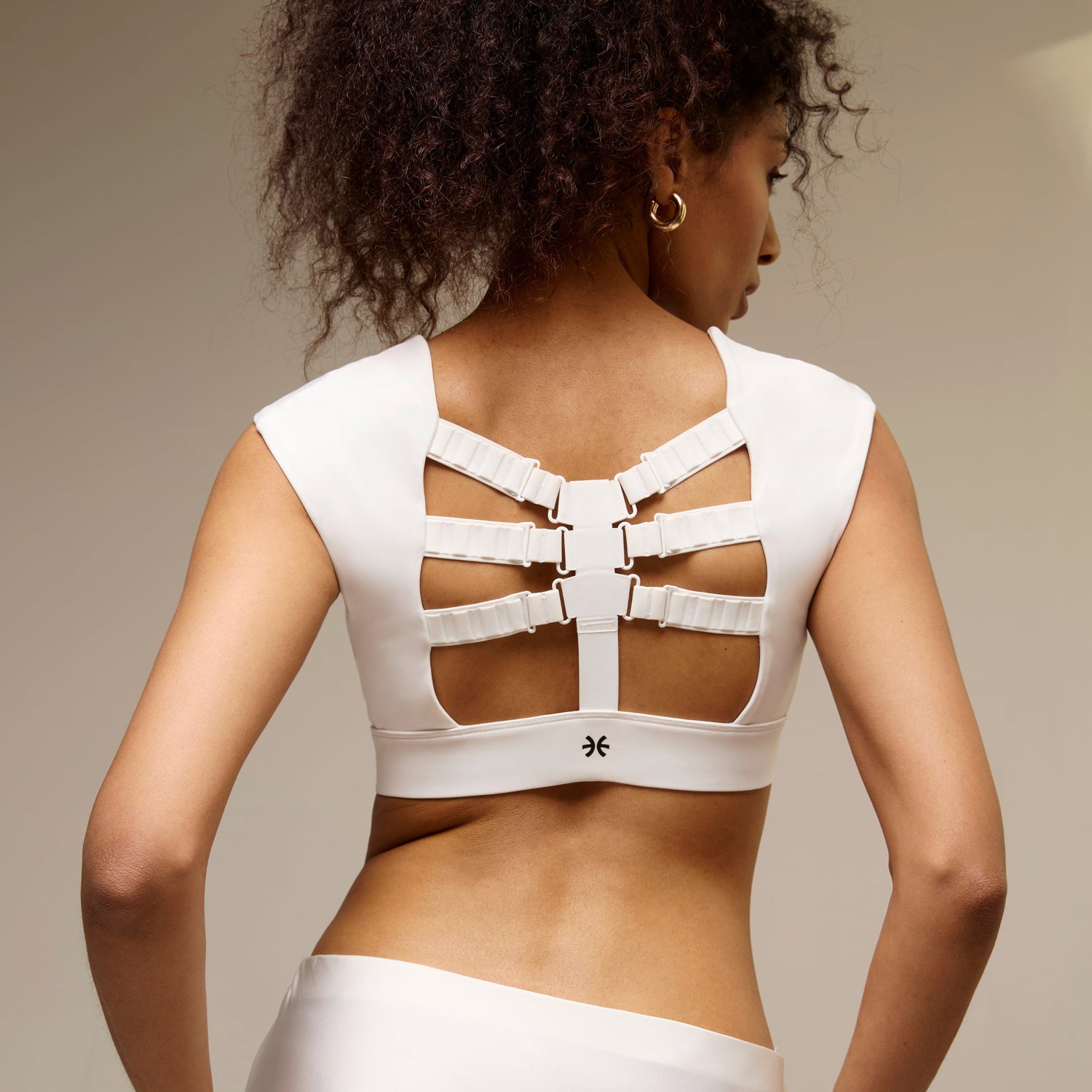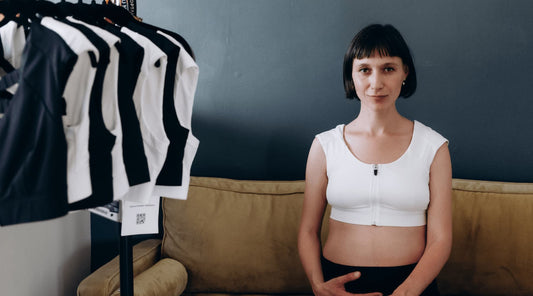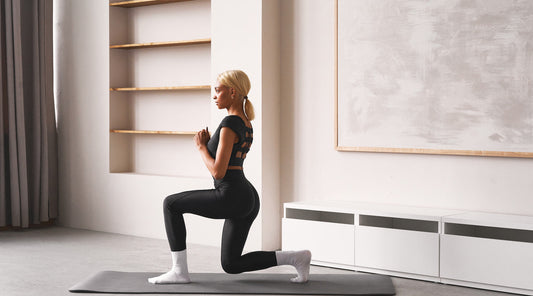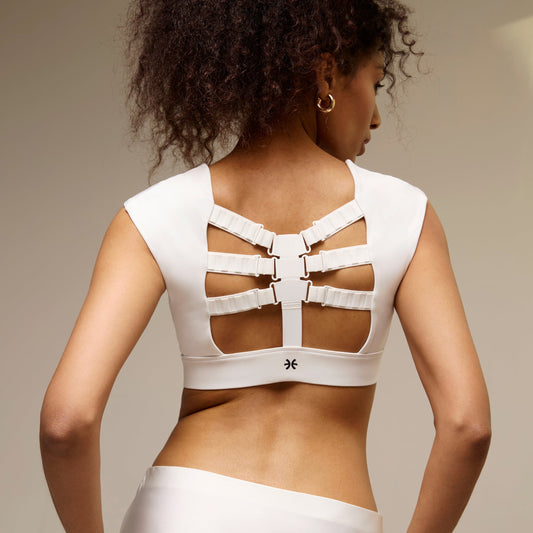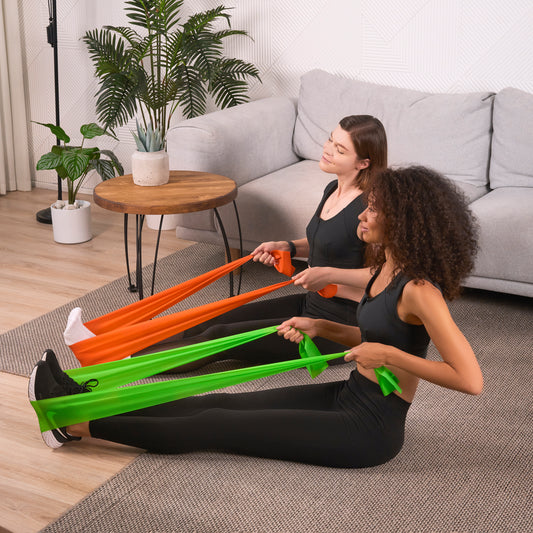Waking up with aches and pains? Your mattress could be a hidden culprit behind posture problems and nagging upper back pain. A low-quality or worn-out bed can throw your spine out of alignment, strain muscles, and stress your body during sleep. Scientific research has linked poor mattress support to spine misalignment and morning pain, especially if discomfort fades after you get up and move around.
Below are the top 10 warning signs that your mattress might be causing back pain, along with insights from studies and experts on why these red flags matter.
1. Morning Back Pain That Fades After Waking Up
If you feel fine at night but experience stiffness or pain in your back, neck, or shoulders every morning, your mattress may be to blame. Pain that is worst when you wake up – then improves as you stretch and start moving – is a classic sign of a sleep surface that isn’t supporting you properly. An unsupportive mattress can lead to spinal misalignment overnight, causing muscle tension and soreness by morning. For example, a too-soft or saggy mattress might let your mid-back sink into an unhealthy curve, only for you to “loosen up” once you’re out of bed. Doctors note that when a bad mattress causes back pain, it’s often nonspecific pain that eases after waking – unlike more serious conditions where pain persists all day. Don’t ignore daily morning aches; they could indicate your spine isn’t resting in neutral alignment at night.
2. Struggling to Get Comfortable at Night
Do you toss and turn for ages trying to find a pain-free sleeping position? An uncomfortable mattress might be the root of the problem. Constantly flailing around or adjusting your position is a telltale sign your bed isn’t meeting your needs. You might feel pressure on your hips or shoulders, or a lack of support under your lower and upper back, making it impossible to settle in. This restlessness not only disrupts your sleep, but it also indicates your muscles and joints are under strain. In fact, studies have shown that people sleeping on a new, supportive mattress toss and turn less and enjoy better sleep quality. If you can’t get comfortable on your current mattress, your body is signaling that the spine isn’t aligned or pressure points aren’t relieved, which can contribute to back and neck pain.
Sleep smarter: Pair a healthy mattress with the practical rituals in “Tired? Try These 6 Healthy Sleep Habits” to build a truly restorative nighttime routine.
Try the tips ›
3. Frequent Waking Up or Light Sleep
Related to tossing and turning, waking up multiple times in the night or sleeping very lightly can also point to a mattress issue. A supportive mattress is the foundation for deep, uninterrupted sleep. Research indicates that poor-quality beds can lead to more awakenings and reduced sleep efficiency. If you find yourself jolting awake due to discomfort, or you sleep through the night but never feel truly rested, your mattress might be undermining your sleep cycles. One study noted that switching from an old mattress to a new one significantly improved sleep quality and reduced back discomfort, even for people with minor muscle aches. Overly firm beds can cause you to wake due to pain from pressure points, while overly soft, sagging beds might wake you as you subconsciously try to readjust your posture. Frequent nightly wake-ups, especially when coupled with back stiffness, are a sign your spine isn’t being cradled in a neutral position through the night.
4. Feeling Like You’re Sinking into the Bed
When you lie down, does your mattress swallow you like a hammock? Feeling “stuck” in a crater or folded like a taco is a strong indicator the mattress is too soft or has lost support. You might notice your hips or mid-section sag far down, which can throw your spine into an excessive curve. This lack of support often leads to upper or lower back pain because your muscles strain to keep your spine. In a clinical study using advanced sensors, a very soft mattress was found to increase spinal curvature and even boost pressure on neck discs by nearly 50%. In simple terms, excess sinking = poor spinal alignment. If your mattress “eats you up” and you have to fight your way out of its imprint each morning, it’s likely contributing to backache. A quality mattress should contour to your body without sagging, keeping your spine level. Feeling like you’re sleeping in a hole is a sure sign your mattress isn’t doing its job.
5. Visible Sagging or Lumps in the Mattress
Take a good look at your mattress. Is there a saggy dent in the middle or bumps and lumps? A visible sag (even 1–2 inches) can absolutely cause back pain by upsetting your spinal alignment. Over time, materials break down and springs lose tension, leading to uneven support. Sleeping in a crater forces your spine into a bowed position, putting strain on muscles and ligaments. Lumpy areas create pressure points against your back. Chiropractors warn that if an old mattress visibly sags, no amount of flipping or plywood boards will truly fix it – it’s time to replace the mattress. Research backs this up: one sleep study found that participants’ average 9.5-year-old beds were moderately saggy, and replacing them led to less back pain and better sleep. Check your mattress surface: if it isn’t flat and supportive, a new mattress could significantly relieve your back stiffness.
6. Mattress Feels Too Hard and Unforgiving
On the flip side, a mattress that’s extremely firm can also trigger back (especially upper back and shoulder) pain. While you do want support, sleeping on a rock-hard surface can force your spine into an unnaturally flat position and create pressure hotspots. You might wake up with numb arms, sore shoulders, or a stiff upper back and neck because a very firm bed doesn’t allow these areas to sink in slightly. Medical experts note that excessive firmness prevents the spine’s natural curves from settling, which may lead to joint pressure and muscle tension. In fact, a famous clinical trial in The Lancet found that patients with chronic back pain who slept on a medium-firm mattress had less pain than those on a purely firm mattress. If your bed feels like a board and you’re waking up sore, it might be too firm for your body. A good mattress should relieve pressure while supporting posture – there’s a balance between soft and hard. Consider a medium-firm or cushioned firm mattress that keeps your spine neutral while cushioning your shoulders and hips.

7. You Sleep Better on Other Beds
One of the clearest signs of a mattress problem is noticing that your back feels fine on a different mattress. Think about how your body reacts when you sleep in a hotel, on a new mattress at a friend’s house, or even on the couch or floor. If your pain vanishes or you wake up with less stiffness away from your own bed, your mattress at home may be the culprit. Many people don’t realize their mattress is the issue until they experience a night of relief elsewhere. In an online forum, for example, one individual suffering mid-back pain found that when traveling, they felt better sleeping on other mattresses, confirming the suspicion that their bed at home was aggravating their back. Your mattress should provide consistent comfort and support – it shouldn’t be the “worst” surface you sleep on regularly. Pay attention to your pain patterns: if changing your sleep environment improves your back pain, it’s a red flag that your everyday mattress is due for an upgrade.
8. Your Mattress Is 7+ Years Old (Worn-Out)
Mattresses don’t last forever. If yours is over seven to ten years old, it may have deteriorated enough to cause back pain even if it was fine when new. Materials like foam break down and lose resilience, and springs can weaken or sag over time. Sleep experts often recommend replacing a mattress roughly every 7–8 years for optimal support. In fact, clinical research supports this guideline: one study showed significant reduction in back pain when people moved from their old (average 9.5-year) beds to new medium-firm beds. If you can’t remember when you bought your mattress, or it obviously looks worn, that age alone could explain new aches. An “out-of-date” mattress might not visibly sag but can still lose its structural support, meaning your spine isn’t held neutral through the night. Don’t wait for extreme sagging to make a change. Over time our bodies and sleeping habits also change, so the mattress that suited you a decade ago might not anymore. Upgrading an aging mattress is often one of the easiest fixes for mysterious back pain.
9. Waking Up Tired and Unrefreshed
Back pain aside, another sign of a poor mattress is never feeling well-rested in the morning. If you wake up more exhausted than when you went to bed (and perhaps achy to boot), your mattress might be robbing you of quality sleep. A supportive mattress is crucial for deep sleep stages when your body restores itself. An unsupportive mattress can cause micro-arousals (tiny awakenings you don’t always remember) that fragment your sleep, leaving you groggy. It can also lead to snoring or discomfort that prevents reaching REM sleep. The result? You’re chronically tired, which can worsen perception of pain. If comfortable, pain-free sleep seems like just a dream, consider that your mattress (as well as your pillow and sleep posture) could be hindering truly restful sleep. Waking up without pep or with back soreness is your body’s way of saying the sleep environment isn’t right.
10. Back Pain Started or Worsened with Your Current Mattress
Think back to when your back or upper spine issues began. Did you start experiencing consistent back pain after buying a new mattress or sleeping on your current one for a while? Or has an existing back issue noticeably worsened over time on this mattress? A mattress that is wrong for your body type or sleep style can gradually create or aggravate pain. For example, if you switched to a much softer bed and your upper back pain flared up, the new mattress might not be giving you enough support. Conversely, a very hard bed can start causing shoulder blade or mid-back pain that wasn’t there before. Your spine’s health is directly tied to your sleep surface. Over months and years, a subpar mattress can contribute to poor posture (even during the day) as your body compensates for nights of bad alignment. If the timeline of your pain matches your mattress use, that’s a strong sign the bed is a factor.
Why it matters: Poor rest compounds posture issues throughout the day. Our deep-dive “The Interplay Between Posture and Sleep Quality” unpacks the loop.
Explore the loop ›

Bottom Line:
Your mattress plays a huge role in spinal alignment and muscle relaxation during sleep. If you’re noticing these warning signs – from morning upper back pain to a cratered, aging bed – it may be time to invest in your sleep surface. A high-quality, medium-firm mattress that suits your body can keep your spine neutral, reduce muscle tension, and help banish those morning aches.
In addition to upgrading your mattress, be sure to support your spine health overall – for instance, many find relief by improving their daytime posture with core exercises or a posture correcting aid (like a posture correcting bra for additional upper back support). The key is to address both night and day posture for lasting relief.
Our piece “How Good Posture Helps to Reduce Back and Neck Pain” is a smart next read.
Scientific Sources & Further Reading
- Kovacs FM et al. (2003). The Lancet, 362(9396):1599–1604. Effect of firmness of mattress on chronic non-specific low-back pain (randomized trial finding medium-firm mattresses led to less pain than firm mattresses).
- Caggiari G. et al. (2021). J Orthop Traumatol, 22:51. What type of mattress should be chosen to avoid back pain and improve sleep quality? (Systematic review concluding medium-firm mattresses promote comfort, sleep quality and proper spinal alignment) jorthoptraumatol.springeropen.com.
- Hong T.T.H. et al. (2022). Biology, 11(7):1030. Influence of Mattress Stiffness on Spinal Curvature and Intervertebral Disc Stress (Experimental study showing soft mattresses increased neck disc pressure, while hard mattresses raised body pressure points; medium firmness was optimal) researchgate.net.
- Daikuya S. & Okayama Y. (2024). Sleep Sci Pract, 8:23. Mattresses, Lumbar Muscle Activity, and Autonomic Function (EMG study finding a supportive mattress led to significantly lower muscle tension and a more relaxed nervous system state) sleep.biomedcentral.com.
- Jacobson BH et al. (2006). J Chiropr Medicine, 5(4):128–134. New Bedding System Effects on Sleep and Back Pain (Found that replacing 9–10 year-old mattresses with medium-firm ones improved sleep quality, reduced back pain and shoulder stiffness in a month-long trial) pmc.ncbi.nlm.nih.gov.
- Cooper J., DC (2022). Baylor Scott & White Health. “Back pain: Is your mattress to blame?” (Chiropractic insight article – explains that lack of mattress support can strain muscles, aggravate back issues, and reinforces poor sleeping posture) bswhealth.com.
- Qi Spine Clinic (2023). “Lower & Upper Back Pain After Sleeping: Understanding Morning Back Pain.” (Health blog noting that a badly structured mattress sags the spine and causes stiffness by morning) qispine.com.
Photo by Slaapwijsheid.nl on Unsplash
FAQs
Can a bad mattress really cause back pain?
How do I know if my mattress is hurting my posture?
What type of mattress is best for spinal alignment?
How often should I replace my mattress?
Why do I sleep better in hotel or guest beds than my own?
Besides replacing my mattress, what else can I do to reduce posture-related pain?
Trending
Try Etalon posture improvement products
